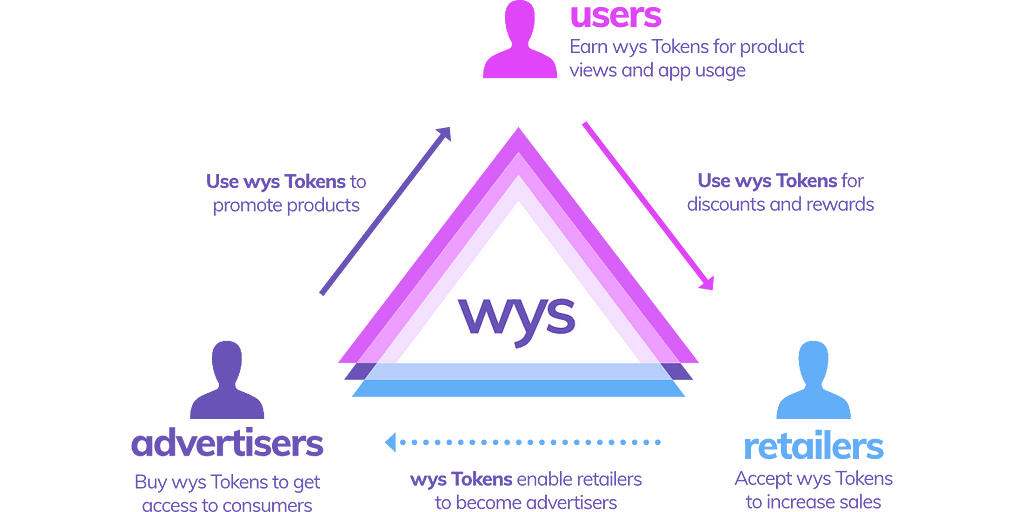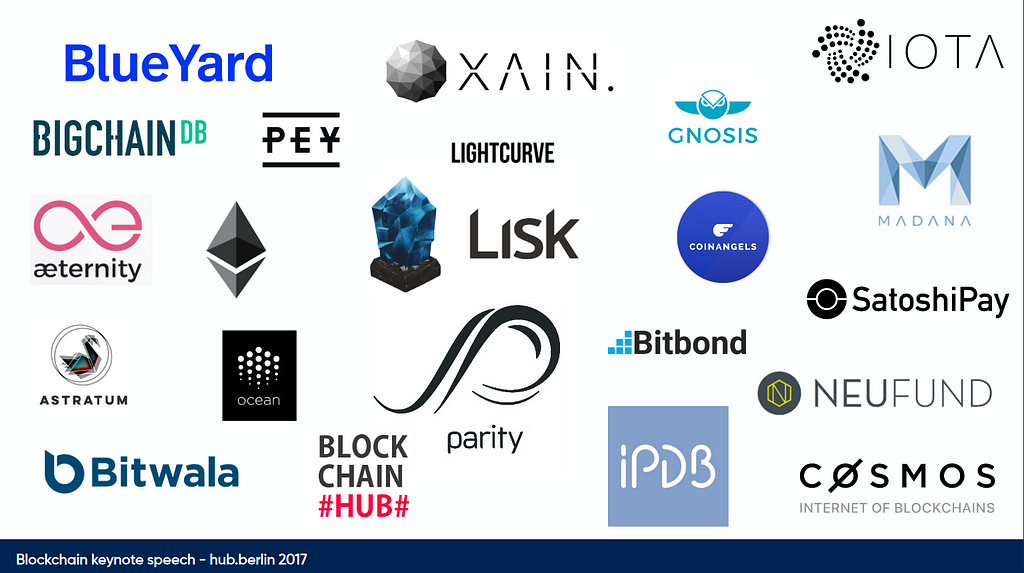Latest news about Bitcoin and all cryptocurrencies. Your daily crypto news habit.
Everybody is talking about the financial aspects of the Bitcoin hype. But the underlying decentralized technologies have much more potential. They can be used to build decentralized versions of social media platforms like Facebook or gigantic ad markets like the one Google has created. These new technologies might be used to break existing monopolies and give us back the control over our very own data.
I think we are about to see the beginning of the democratization of the digital markets. Protocols like https://oceanprotocol.com/ use blockchain technologies to democratize AI
Protocols like https://oceanprotocol.com/ use blockchain technologies to democratize AI
When you read about Bitcoin you will soon encounter its underlying Blockchain technology. Blockchain is a decentralized approach that works without intermediaries or central platform providers. Instead Blockchains work distributed — you might think of a swarm of compute and storage nodes adhering to a common protocol.
If you think back: Peer-to-peer approaches already were “en vogue” at the beginning of the Millennium. Millions of people used Napster to share music. But most of the use cases at the time were illegal. Decentralized systems quickly lost their importance. Instead mobile apps and centralized cloud computing became the dominant technological approach.
Nevertheless, decentralized technologies were further developed in the Blockchain communities. They are now getting more and more attention — and immense funding. Many observers quickly get distracted by the financial incentives of this development. So the revolutionary potential of the underlying technologies for our society is still widely unnoticed.
At first glimpse Blockchain-based approaches seem to be a step backwards — even for many computer scientists. Pioneers of this technology like Adam Ludwin from chain.com are well aware of this fact:
- These approaches are slower compared to central, cloud-based approaches.
- Current versions consume a lot of energy. The underlying consensus algorithms use compute-intensive cryptographic methods, in order to protect the system against fraud. This “built-in defense mechanisms” of the system have their price.
- They are harder to scale than centralized approaches.
- Many Blockchain systems still have a bad user experience.
- Most systems are still not regulated — so the legal foundation is still shaky.
The Blockchain scene accepts all of these disadvantages in order to truly decentralize their systems. In return they create a free market, which is well protected against censorship and attacks from the outside. The self-healing powers are built into the lowest foundation of these systems.
This sounds banal at first. And it’s really hard to grasp the potential of Blockchain just by reading articles.
My personal journey
Motivated by intense contact with various startups I decided to gain my very own experience as a user of these technologies in the recent months.
My first step was to get engaged with Wysker, a Blockchain-focused startup from Berlin that wants to create a new online shopping experience as you can see in this video. But the real revolution is not the app, it’s the underlying system. Wysker creates a marketplace for its users, its retailers and its advertisers. Similar as many Blockchain companies Wysker issues their own WYS Token to create a digital asset as foundation of their marketplace.
Source: Wysker
A central focus of Wysker’s approach is their users’ privacy. Users will be in control over what happens to their data during a shopping session. They might decide to not share their usage data at all. Or they might decide to get paid in WYS tokens if they deliberately accept that Wysker is using the tracking of their behavior to show targeted ads that match their users’ current interests. Later-on users can use these tokens to pay their bill.
On the surface Wysker attacks retail platforms such as Amazon with this concept. But actually they create a community, they build an ecosystem, they build an ad system that lets users control the use of their data. They are attacking the rather obscure ad network of Google. Let that sink in.
Like many similar startups Wysker launched an initial coin offering (ICO) to find early investors. The ICO is currently in presale. It’s also geared towards small investors and fans. I’ve participated in this presale. You can find the rather mixed feelings of my “investor journey” over here.
Nobody can tell whether exactly this company will be truly successful. But one thing remains for me: fascination. It is just incredible how much is going on in this environment. Numerous tools are competing for the favor of users — commercial as well as open source. The momentum is tremendous.
Further insight
End of November I attended the Hub Conference of the German digital association BITKOM in Berlin. You could literally feel the strength of the Blockchain movement: Nobody talked about the first (Bitcoin) or second generation (Ethereum). The hot topic was Blockchain 3.0. New approaches promise to tackle many of the technological disadvantages mentioned above: Frameworks such as IOTA introduce new ledger concepts that remove many restrictions in terms of transaction speed, transaction cost and energy consumption in these decentralized systems. The creators have big goals: they want to establish a democratized data lake that puts the creators of each data item (namely every one of us) in control of the usage of their data. The organizational structure behind IOTA is remarkable: it’s a Foundation committed to the European data protection standards (GDPR). Also amazing: the list of prestigious partners including many universities, but also large companies such as Bosch and Deutsche Telekom!
European policy still tries to support local companies to compete with US technology giants. Nobody noticed this vibrant, bottom-up Blockchain scene evolving precisely in Europe and Germany, as shown in this photo of one of the Hub presentations by Max Kordek. There are currently about 40 Blockchain startups in Berlin:
Source: Max Kordek
Examples of Blockchain 3.0
The possibilities to apply blockchain technologies are very broad. Blockchain researchers like Dimitri de Jonghe want to create public utility networks of all kinds. There are companies that create market places for data, management of identities, lending money, venture funding and many more. Some of them are attacking existing business: E.g. FileCoin competes with DropBox — the cool thing: you can be a part of it. You can put your unused computer storage to work and become a “Filecoin miner”. You will get paid for fulfilling storage requests on the Filecoin market and earn tokens that you can later exchange for traditional money.
Sounds fascinating? Well — FileCoin just collected as little as 257 million USD during their ICO.
Frameworks like BigchainDB or IPDB even want to re-create the Internet foundations with decentralized, privacy-first approaches for data storage and networking. Many of these new companies are centered in Europe, in towns like Berlin (Germany), Delft (Netherlands) or Zug (Switzerland).
Conclusion
It’s still the early days, but the possibilities are enormous. I’m totally excited to see how these new ecosystems will emerge. There will certainly be many disappointments very soon. Nevertheless, I am sure that we currently see a massive paradigm shift — driven from Germany and Europe. If I was Facebook or Google, I would pay close attention to this development.
If you want to dive deeper into these topics I would recommend to watch this great talk by Dimitri de Jonghe on Youtube.
Disclaimer: You can find a German version of this post on the official Zühlke blog. I will also cross-post this story on steemit — a blockchain-based smart social media network.
 This story is published in The Startup, Medium’s largest entrepreneurship publication followed by 289,682+ people.Subscribe to receive our top stories here.
This story is published in The Startup, Medium’s largest entrepreneurship publication followed by 289,682+ people.Subscribe to receive our top stories here.
Democratizing the digital markets was originally published in The Startup on Medium, where people are continuing the conversation by highlighting and responding to this story.
Disclaimer
The views and opinions expressed in this article are solely those of the authors and do not reflect the views of Bitcoin Insider. Every investment and trading move involves risk - this is especially true for cryptocurrencies given their volatility. We strongly advise our readers to conduct their own research when making a decision.

